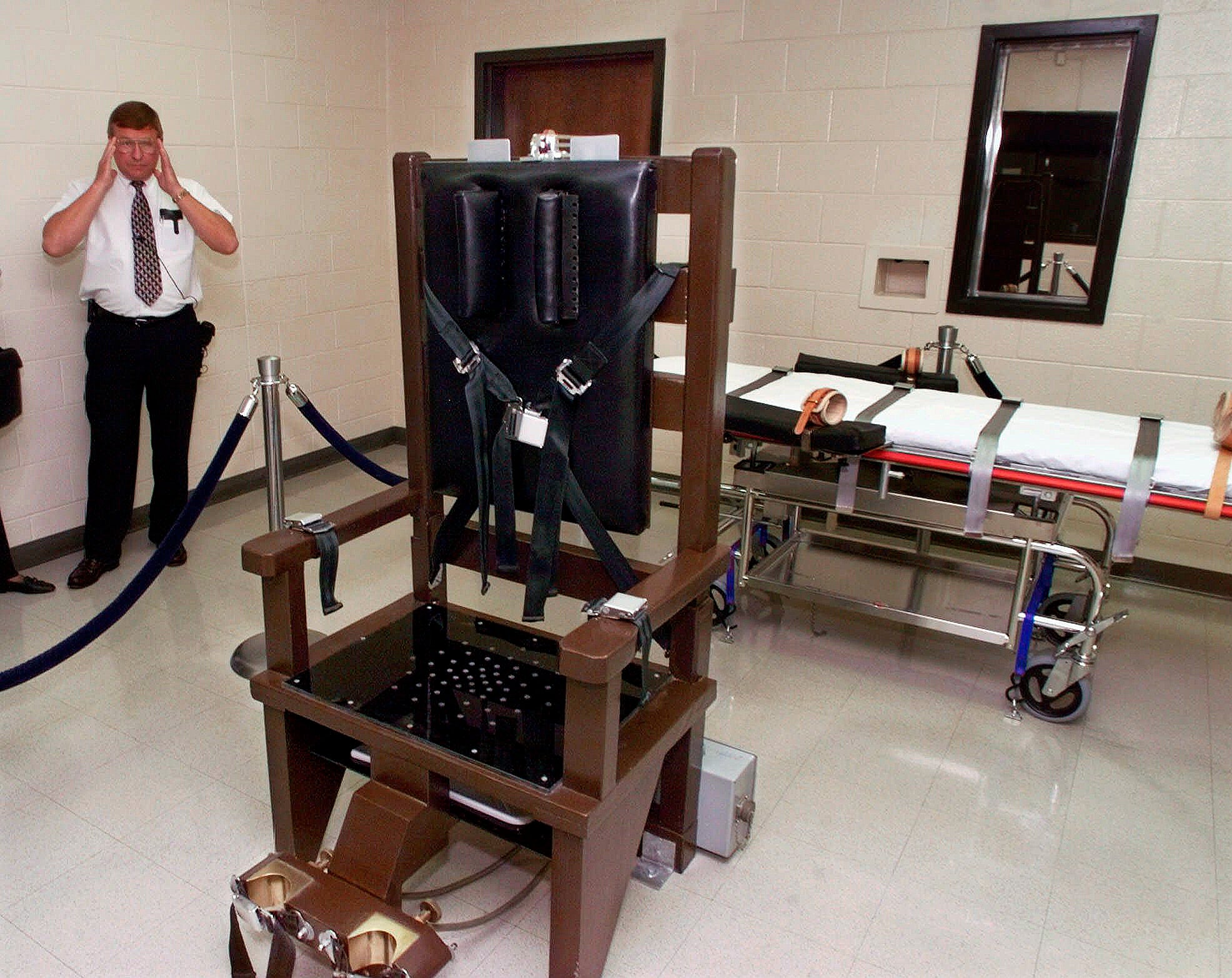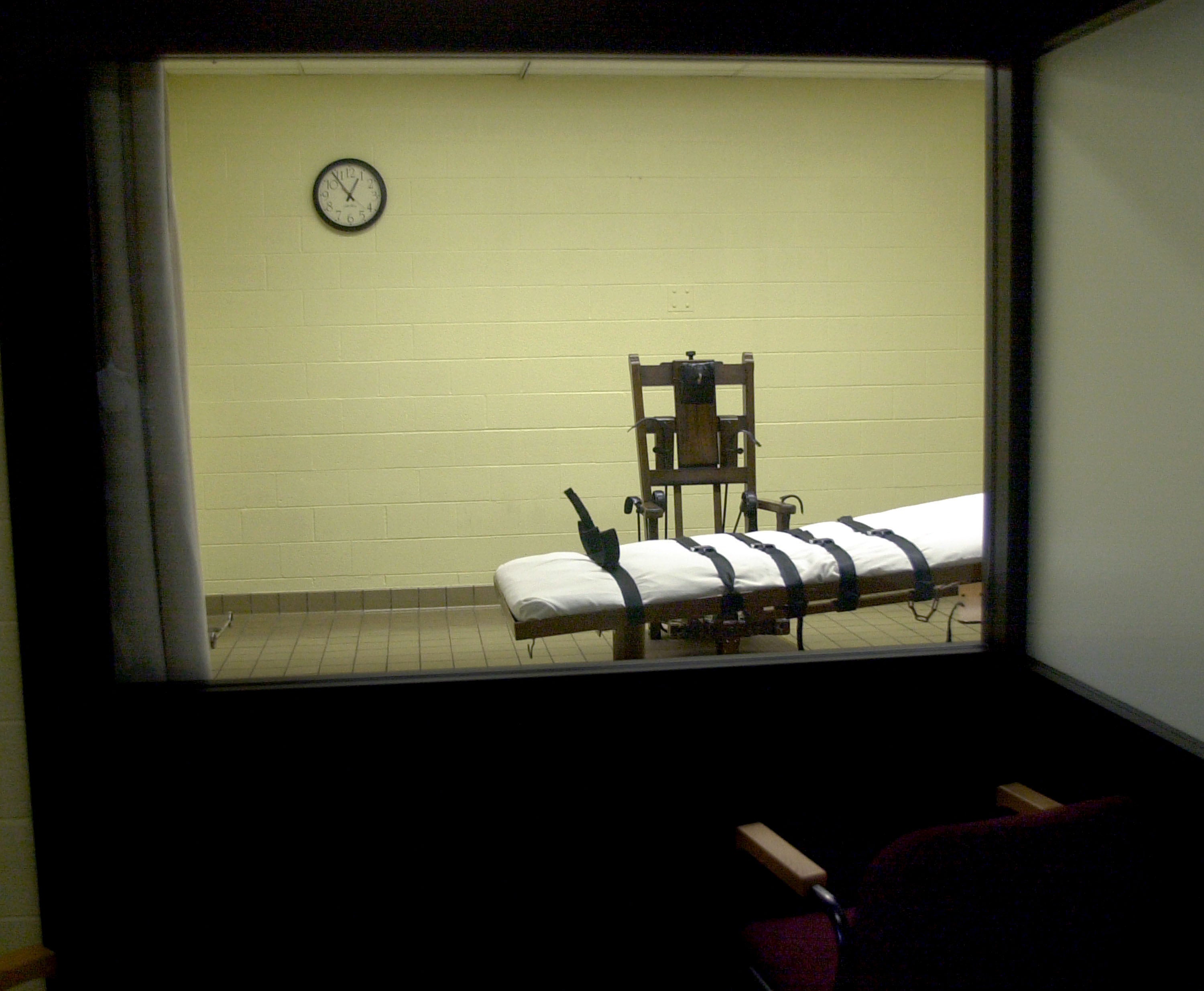Why Tennessee is keeping its new execution manual a secret
A Tennessee correction spokesperson said that protocol is not a public record

Your support helps us to tell the story
From reproductive rights to climate change to Big Tech, The Independent is on the ground when the story is developing. Whether it's investigating the financials of Elon Musk's pro-Trump PAC or producing our latest documentary, 'The A Word', which shines a light on the American women fighting for reproductive rights, we know how important it is to parse out the facts from the messaging.
At such a critical moment in US history, we need reporters on the ground. Your donation allows us to keep sending journalists to speak to both sides of the story.
The Independent is trusted by Americans across the entire political spectrum. And unlike many other quality news outlets, we choose not to lock Americans out of our reporting and analysis with paywalls. We believe quality journalism should be available to everyone, paid for by those who can afford it.
Your support makes all the difference.Just days after Tennessee announced it had a new manual for executing death row inmates, the state's top prison officials said they aren't going to release the document to the public.
The Tennessee Department of Correction last week told The Associated Press to file a public records request to obtain a copy of the latest execution manual, known as a protocol. However, the agency this week denied the request, saying it needs to keep the entire document secret to protect the identities of the executioner and other people involved.
The decision to maintain secrecy differs from how the state has handled similar requests in the past, but mirrors efforts across the U.S. to suppress public access surrounding executions, especially after anti-death penalty activists used records to expose problems.
The protocol is typically a detailed set of procedures describing how the state executes death row inmates. Tennessee had been operating under a 2018 protocol that included directions on selecting execution team staff and the training they should undergo. It explained how lethal injection drugs should be procured, stored and administered. It gave instructions on the inmate's housing, diet and visitation in the days leading up to execution. It provided directions on how to choose media witnesses.
For lethal injection, the 2018 protocol required a series of three drugs administered in sequence.

The new version unveiled last week requires only a single dose of pentobarbital. But that is all that is known about the revised protocol.
In an email sent Monday, Tennessee correction spokesperson Kayla Hackney told the AP the “protocol is not a public record" and cited a Tennessee statute that makes the identities of the people carrying out executions confidential.
However, that same statute says the existence of confidential information in a record is not a reason to deny access to it, noting that the confidential information should be redacted.
What has Tennessee done in the past?
In 2018, Tennessee's correction agency provided a redacted copy of the protocol to an AP reporter over email.
In 2007, a previous version of the protocol was treated as a public record and provided to the AP after former Gov. Phil Bredesen, a Democrat, announced a surprise halt to executions. A reporter's review of that 100-page “Manual of Execution” found a jumble of conflicting instructions that mixed new lethal-injection instructions with those for electrocution.
Why did Tennessee update its protocol?
Executions have been on hold in Tennessee since 2022, when the state admitted it had not been following the 2018 protocol. Among other things, the Correction Department was not consistently testing the execution drugs for potency and purity.
An independent review of the state’s lethal injection practice later found that none of the drugs prepared for the seven inmates executed since 2018 had been fully tested. Later, the state Attorney General’s Office conceded in court that two of the people most responsible for overseeing Tennessee’s lethal injection drugs “incorrectly testified” under oath that officials were testing the chemicals as required.
Executions in the U.S. have remained at historic lows for years, but the small group of states still carrying out the death penalty have only increased the secrecy surrounding the procedures, particularly over how and where the state secures the drugs used for lethal injections.
Many states argue that secrecy is critical to protect the safety of those involved in the execution process. Yet in a 2018 report, the Washington-D.C.-based nonprofit Death Penalty Information Center found that this argument often led to these states refusing to provide information about the qualifications of their execution teams and some courts have criticized such arguments for lack of evidence that more public disclosure would result in threats against prison officials.
Kelley Henry, chief of the federal public defender’s habeas unit that represents many of Tennessee’s death row inmates, described the state's refusal to release the new protocol, given that background, as “mystifying."
“The secrecy, which cloaked the former execution protocol, created a culture of incompetence and lack of accountability,” she said in an email.